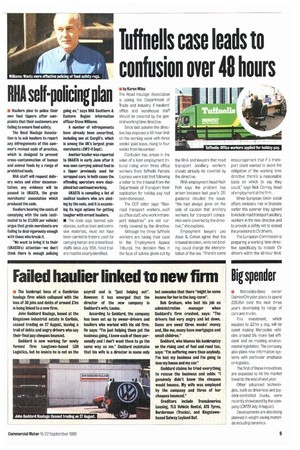MA sell-policing plan
Page 9

If you've noticed an error in this article please click here to report it so we can fix it.
it Hauliers plan to police their own food tippers after complaints that their customers are failing to ensure food safety.
The Read Haulage Association is to ask hauliers to report any infringements of this summers revised code of practice, which is designed to prevent cross-contamination of human and animal foods by a range of prohibited loads.
RHA staff will request delivery notes and other documentation; any evidence will be passed to UKASTA, the grain merchants' association which produced the code.
Hauliers bearing the costs of complying with the code (estimated to be 11,000 per vehicle) argue that grain merchants are failing to deal vigorously enough with those who break it.
"We want to bring it to their (UKASTA's) attention—we don't think there is enough policing going on," says RHA Southern & Eastern Region information officer Steve Williams.
A number of infringements have already been unearthed, including one at Cargill's, which is among the UK's largest grain merchants (CM2-8 Sept).
Another haulier was reported to UKASTA in early June after it was seen carrying animal feed in a tipper previously used for scrapped cars. In both cases the offending operators were disciplined but continued working.
UKASTA is compiling a list of audited hauliers who are abiding by the code, and it is examining its legal options for getting tougher with errant hauliers, • The code says banned substances, such as toxic and corrosive materials, must not have been carried in trailers used for carrying human and animal foodstuffs since July 1998. Food trailers must be clearly identified.










































































































